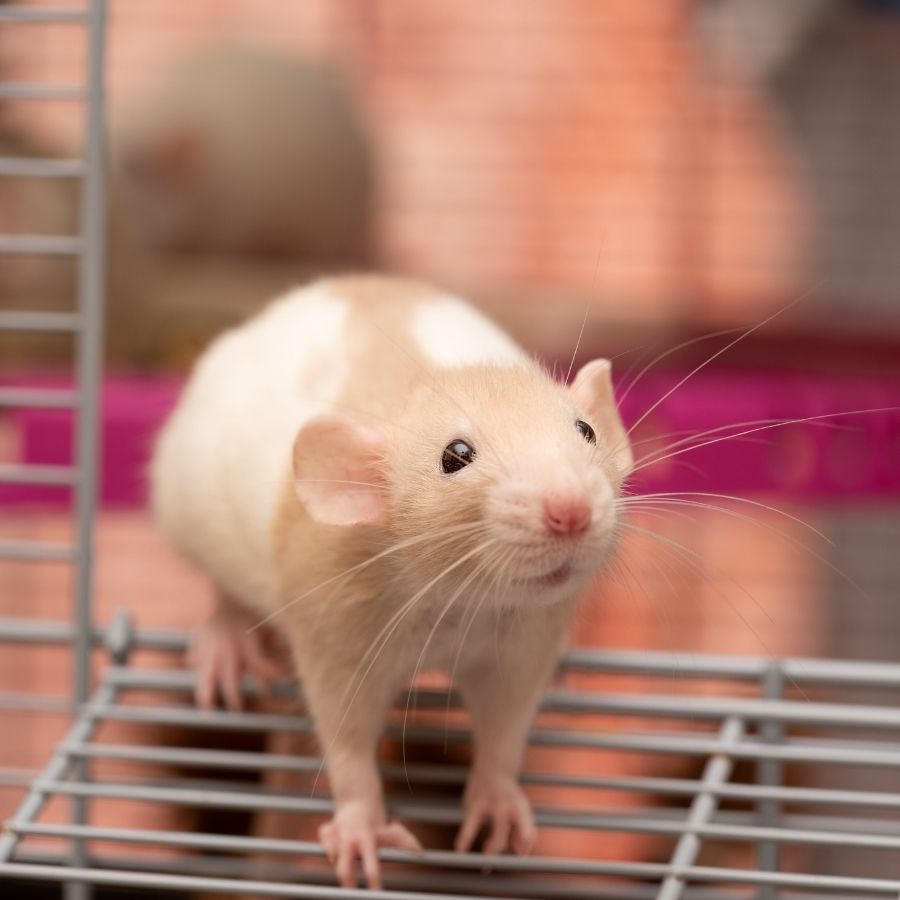Additional Pet Services
Our additional pet services at Santa Rosa Veterinary Hospital include exotic medicine, daytime critical care, cardiology, and endocrinology.

Veterinary Services
Additional Pet Services in Santa Rosa, CA

Exotic Pet Medicine
If you own any exotic pets such as birds, reptiles, ferrets, rabbits, hedgehogs, and other pocket pets, it is good to know where to go when they become sick or injured. Establishing a good working relationship with an exotic pet veterinarian in Santa Rosa can be a challenge for any pet owner but is a special challenge for the exotic pet owner. The exotic pet owner must find a vet who is willing to see their pet, knows something about their pet, and has the facilities, equipment, and materials to treat their pet. Not all vets see exotics, and not all the ones who say they do know what they are doing.
As an owner, it is important that you bring your pet in for annual exams. It is very easy not to recognize symptoms of illness in your exotic pet when your pet exhibits them. Often, exotic pets don’t get to the veterinarian in time, and sometimes that can result in a very sad ending. At Santa Rosa Veterinary Hospital, we can give your pet a full exam, monitor your animal’s weight, detect slight onset of disease, give you nutritional, behavioral, and husbandry education, and develop a relationship with you and your pet that may one day save its life.
Daytime Critical Care
Our hospital is well-equipped to handle critical cases and pet emergencies with the same care and compassion we provide all of our animal patients. Equipped with the latest veterinary medical technology and staffed with trained people (including experienced veterinarians and registered veterinary technicians), we are prepared to provide the emergency and critical care your pet requires. With our digital X-ray, ultrasound, endoscopy, and EKG equipment, we can quickly evaluate your pet for signs of injury or disease. At the same time, our in-house laboratory can process blood and urine tests quickly. If you believe your pet is in need of emergency care, please give us a call.
Cardiology
In recent years, heart disease has become increasingly common in cats and dogs. A primary reason for this increase is the fact that, thanks to modern veterinary medicine, our pets are living longer and are thus becoming more susceptible to diseases of old age such as heart disease and cancer. This increase in pet life spans is one reason why we encourage our pet owners to take advantage of our senior pet care services as their pets age to ensure any potential problems are caught early when they are still much more easily treated and managed.
While more common in older cats and dogs, heart problems can also occur in puppies and kittens. The good news is that, with early detection, heart problems in both young and old dogs and cats can be treated and controlled, thereby enabling them to live longer and lead more normal lives.
Since visible symptoms are frequently absent, especially in cats, regular veterinary checkups are important. Our veterinarians and veterinary technicians have a variety of tests and tools to assess and diagnose pet heart problems. These tools include blood work, checking your pet’s blood pressure, an electrocardiogram, and ultrasound echocardiograms. Any one or combination of these tools can be used to check your dog or cat’s heart health.
While regular checkups and the observance of healthy habits will not always prevent the onset of heart problems, they will give us a better opportunity to catch symptoms early, so your pet can continue to live a normal life if heart problems should occur.
Endocrinology
At Santa Rosa Veterinary Hospital, we are equipped to recognize and diagnose endocrine issues. These serious, potentially life-threatening conditions are much more manageable when caught early, allowing us to begin proper treatment.
The endocrine system is made up of a group of tissues (mostly glands) that release hormones into the bloodstream. These hormones regulate metabolism, growth, development, and reproduction and are dispersed to different areas of the body, depending on the hormone’s function. When a hormonal balance is disturbed (by a tumor or autoimmune disease, for instance), an endocrine disorder can develop. “Hyper” refers to an excess of hormone, and “hypo” refers to a deficiency in a hormone. Treatment varies depending on the disease.
There are several common endocrine disorders found in dogs and cats:
- Diabetes mellitus is caused by a deficiency in or resistance to the hormone insulin.
- Hypothyroidism, which is often diagnosed in dogs, indicates that the animal has low thyroid hormone levels.
- Hyperthyroidism, which frequently affects cats, indicates that the animal has high levels of thyroid hormones.
- Addison’s disease (hypoadrenocorticism) and Cushing’s disease (hyperadrenocorticism) can also affect both species, although Cushing’s disease is rare in cats.
Contact us if your pet begins panting excessively, develops any skin issues (such as hair loss or dull coat), or shows any changes in behavior, energy levels, appetite, weight, water consumption, or urination.
